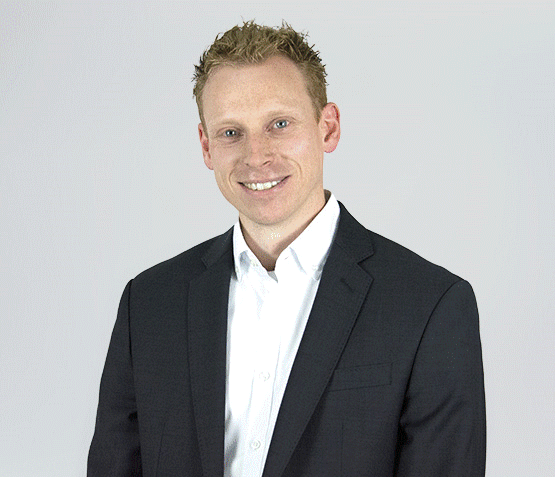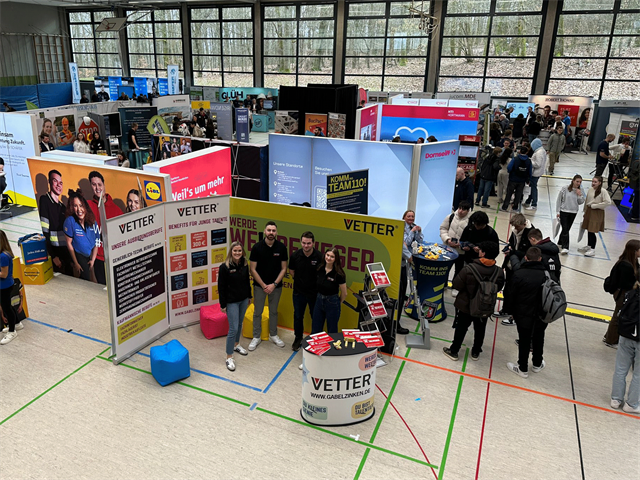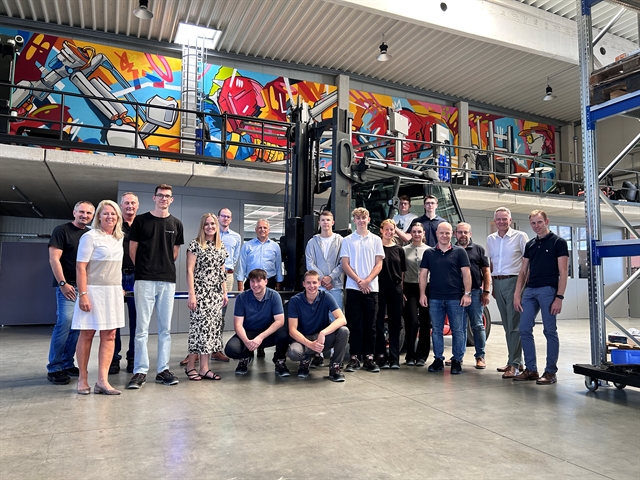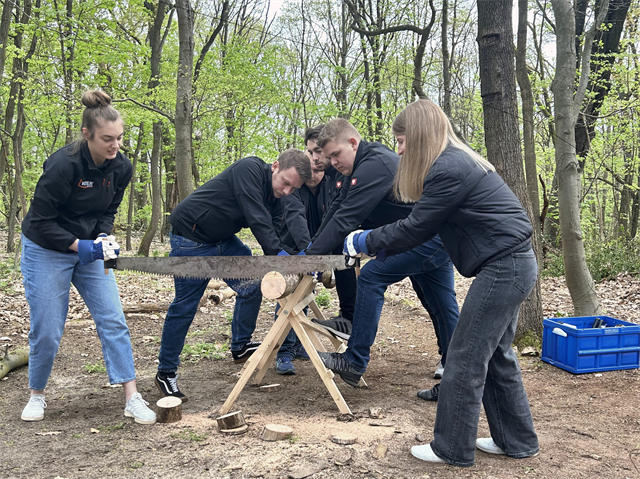 VETTER's head of human resources, Kai Böcher.
VETTER's head of human resources, Kai Böcher.
Beginning as an industrial clerk trainee in VETTER’s apprenticeship program in 1999 and advancing through a 25-year career with the company, Kai Böcher, now head of human resources, is proof that the way you enter the industry matters.
As exemplified by Kai’s journey and now the apprentices he oversees, high-quality training may be vital, but the way employees are welcomed into the company community is also essential for a strong start.
Forkliftaction’s Rosie Clifford asks Kai about the changing landscape of HR and how to nurture the next generation of talent.
RC: What are some of the key HR challenges that are unique to the materials handling industry right now?
The shortage of skilled workers in Germany, which has already existed for some time in many areas, does not stop at the materials handling industry. It is likely to become even more acute in the coming years.
 Attending a training fair at a local school, one of the many ways the company aims to attract future talent.
Attending a training fair at a local school, one of the many ways the company aims to attract future talent.
Moreover, it has become increasingly difficult to convince young school leavers to take up industrial and technical training.
RC: How is your team aiming to address these challenges?
KB: We attend various training fairs, cooperate with schools, facilitate company visits on request and offer lots of internships.
We also participate in school events such as the local community school’s in-house exhibition and provide information on training.
High quality training is the foundation for attracting the good specialists of tomorrow.
RC: At VETTER you have a robust apprenticeship program and work actively to encourage young people into the industry. What’s the biggest misconception that employers have about Gen Z?
KB: I believe the biggest misconception about Gen Z is that they are not motivated.
Of course we are facing new challenges as the perspectives and individual goals of Gen Z have shifted in comparison to the Millennials and Boomers before them.
However, if we can create personal alignment for young people, they can identify with their work, which in turn will result in a high level of motivation and the will to perform.
 VETTER welcomes eight new trainees into its apprenticeship program in 2024.
VETTER welcomes eight new trainees into its apprenticeship program in 2024.
RC: Traineeship programs represent a major ongoing commitment for companies. What are some of the ways that VETTER works to retain new starters through their apprenticeship and onto a career with the company?
KB: In addition to high-quality training, benefits such as bike leasing and the cantina are becoming increasingly important.
We also try to ensure that everyone is engaged with the company at an early stage to increase motivation. This also helps to ensure that our employees feel comfortable and enjoy their work.
 The apprentices enjoy some fun team building at the annual trainee trip.
The apprentices enjoy some fun team building at the annual trainee trip.
During training this is promoted by measures such as the annual trainee trip which offers plenty of time to get to know each other and is a great opportunity to strengthen group cohesion.
At our last trip, trainees participated in team competitions centred around different activities such as archery or team skiing, which were great for team building.
The trips are often accompanied by an educational program. The last included a visit to the Bundestag in Berlin, where our trainees explored the building and engaged in discussions with politicians on topics such as the debt brake, the Russia-Ukraine war and pensions.
RC: You have been in human resources since 2007. Have you seen a big change in what employees are looking for from their employers?
KB: The job market has changed completely. Back then companies could still carry out a “proper” multi-stage selection process for all jobs.
Today the applicant can choose the company, which means that companies must do a lot more advertising for themselves.
In my experience, the shift during the past few years means the focus is no longer on the targets alone. Criteria such as work-life-balance and benefits must now also be integrated.
In addition, bureaucracy has increased many times over in all areas of HR.
RC: How integral is company culture and employee wellbeing to productivity? Are there some tangible ways that companies can facilitate a higher level of wellbeing for their employees?
KB: Both are very important. Only those who feel good can deliver top performance.
There are many factors that make employees feel good. HR can influence these factors through a variety of measures starting with a modern and ergonomically-equipped workplace through to facilitating fair and open interaction across all levels and positions.
A special benefit VETTER offers is a health budget that every employee is entitled to.
In addition, we run employee events such as Christmas festivities or summer parties.
Appreciating the work of each individual is extremely important. A company can only be successful together.
RC: You recently celebrated a work anniversary, 25 years since your start as a trainee. What keeps the materials handling industry and your work in HR interesting to you after all these years?
KB: It never gets boring. There are always new challenges and tasks.
Working in HR means that you are always dealing with people and have a responsibility towards each individual.
There is a wide variety of topics to consider, from payroll accounting and health management to employee recruitment and retention, just to give a brief overview.
It makes me proud to ensure that a large number of people have secure jobs in a successful company every day.
Work in materials handling? We would love to hear your story!